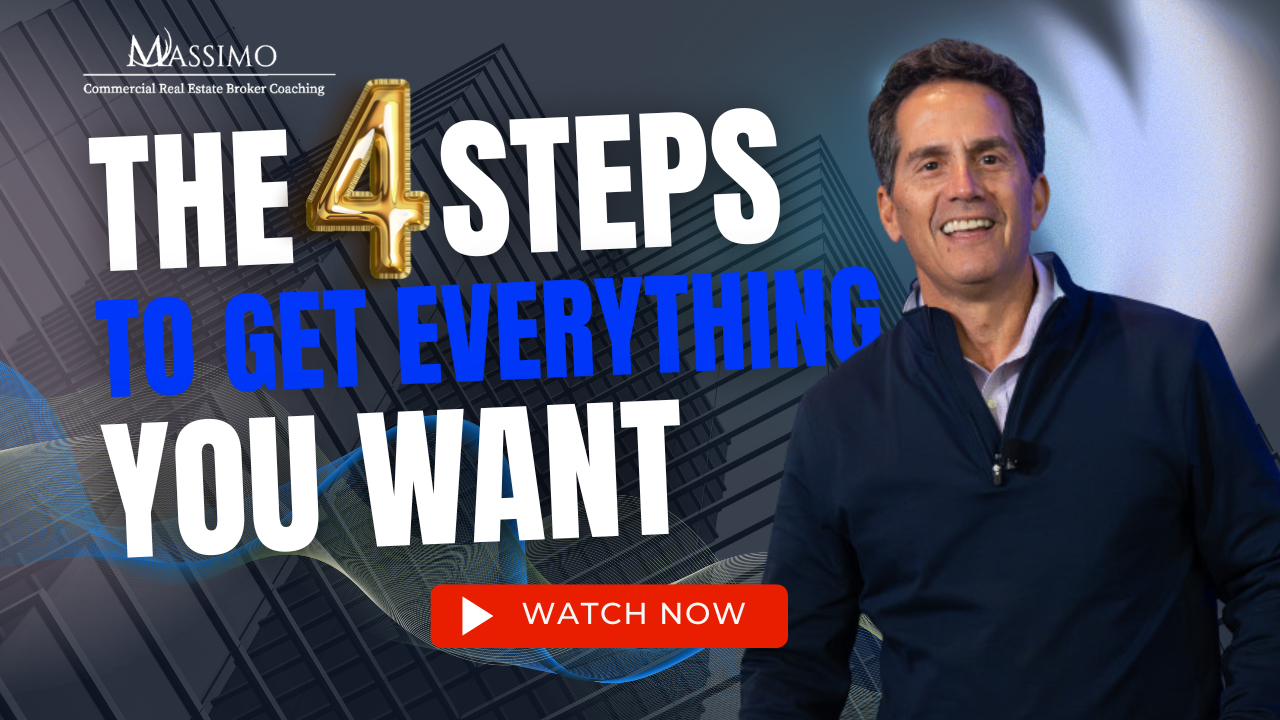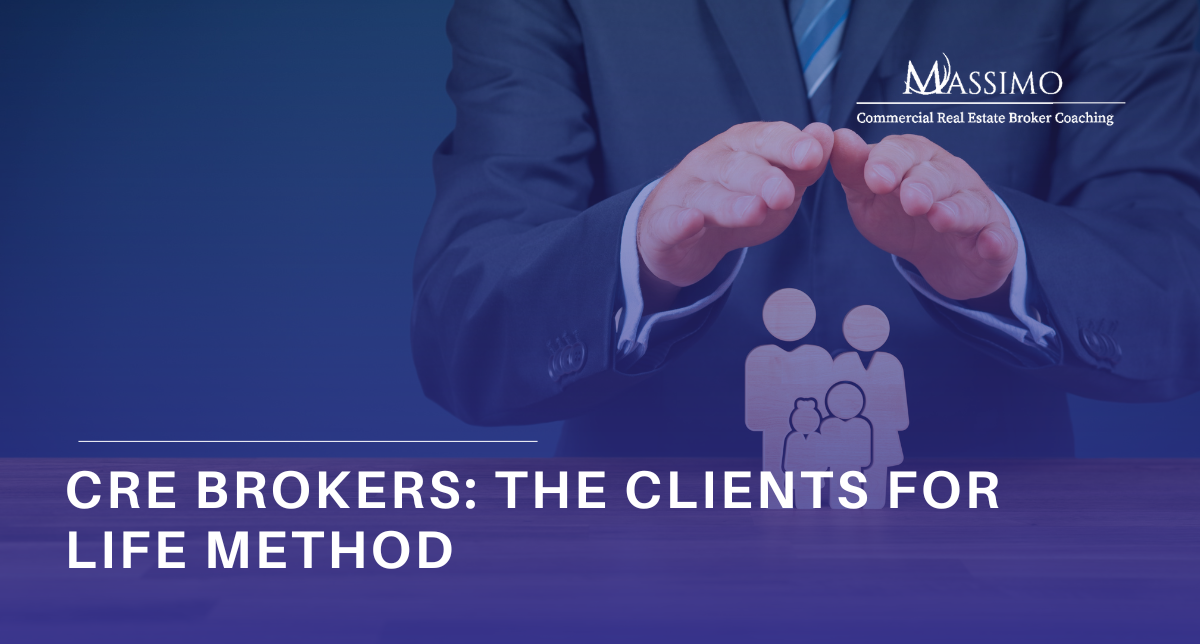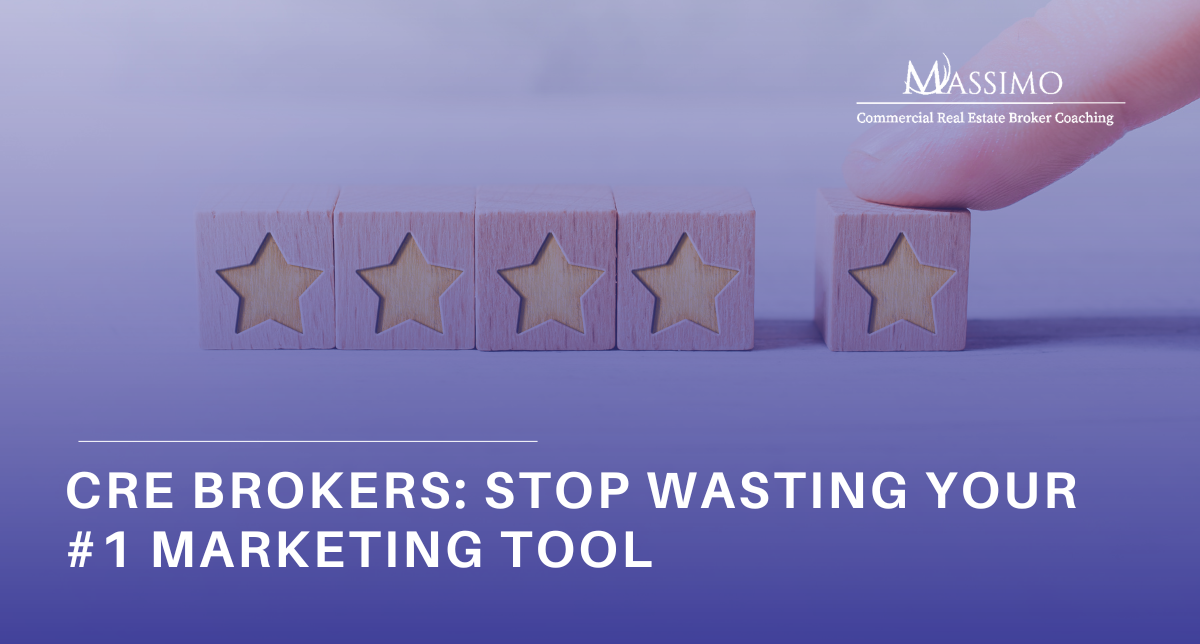Let me start off by sharing what I stated last week: Commercial real estate commissions equal income. What happens after commissions equals wealth. Please write that down, and cement it in your brain.
In my last blog I shared Kevin Bassett’s 4-step process for creating wealth. Step 1 is building your personal commercial real estate business. This first step has 6 essential components. If you haven’t implemented these 6 components in your business, then you are limiting your ability to consistently generate high-quality, high-value commissions. Step 2, Maximizing Your After Tax Cashflow, won’t really apply unless you master Step 1. If you need a refresher on Step 1, please review our last blog.
Kevin Bassett, CPA, is more of a tax strategist. He works with his national clients to position them, and their personal businesses, for minimal tax obligations and maximum wealth creation. During a webinar we completed last month, Kevin identified the biggest mistake commercial real estate brokers and agents make in relation to their tax planning.
Taxes are hazardous to your wealth. As your income grows, taxes can become your largest household expense. And that’s not a good situation for anyone. Think about all the taxes you pay:
- You pay income taxes,
- Then there’s something called the alternative minimum tax that a lot of people don’t even realize they’re paying.
- If you’re not properly structured, you may be paying something called self-employment tax. Kevin considers this a voluntary tax, you don’t need to pay it. It is also called an ignorance tax.
- Then you may have payroll taxes, with Social Security and Medicare.
- And then, Obamacare taxes.
- For some of you, you’ll pay property taxes on your real estate investments as well.
So, these are all the taxes. And these are what’s hazardous to your wealth — leaving you with less dollars left over after your commission. According to Kevin, it can actually get worse for those of you who have your 2017 tax return on extension.
In 2017 the highest tax bracket is just under 40 percent. In addition, there’s the phase out of itemized deductions and personal exemptions — that’s called a stealth tax, that adds another two percent to the taxes. And then, there is an extra four percent for Obamacare taxes. Add all that together, and you could have a top tax rate at the Federal level in 2017 — of 46 percent. But wait, it gets even better (well actually, worse)! If you’re in a state that has income tax, you need to add those taxes on top of it. And, if you’re in a state like New York, California, New Jersey, or Massachusetts — your total top tax rate could be well more than 50 percent. In fact, California and Oregon get close to 60 percent for the top tax brackets!
As you can see, you need to have the best structure for your personal commercial real estate practice to minimize your taxes, and maximize your after-tax cashflow. According to Kevin, the best thing to do as a commercial real estate broker is to get out of the sole proprietorship trap.
During our national webinar, we polled the audience to determine how they were formally structured — the overwhelming response was “sole proprietorship”.
Once your income grows above $40,000, get the heck out of the sole proprietorship. Your lawyers would agree, since you have personal and legal liability if you are structured as such. From a tax standpoint, sole proprietorship is the worst possible structure — not only will you pay regular income tax, you must pay self-employment tax on your entire profit. Self-employment tax is 15.3 percent, and based on Kevin’s approach — a completely voluntary tax. In addition to that, you must pay Obamacare tax if your income is above $200,000.
The answer is ‘Create an S-Corporation’. From a tax perspective an S-Corporation reduces the self-employment taxes, and it reduces your Obamacare taxes. With this approach, you do have to pay yourself a “reasonable wage” — which the IRS defines as reasonable compensation. This can range anywhere from $40,000 to $100,000, depending on your specific situation and income levels (this is something your CPA can help you with). You then take the rest of your commission income as S-distributions. S-distributions are very valuable because you don’t pay any self-employment taxes on it. In fact, under the new tax law, that income is taxed at a lower rate under what they call the new pass through exclusion, effective this year.
It is clear that an S-Corporation is a big tax saver. In addition, according to Kevin, an S-Corporation has significantly lower audit risk with the IRS than if you filed a schedule-C. With schedule-C filings, the audit risk is roughly triple that of an S-Corporation. So, you’re paying a heck of a lot more tax, while increasing the chance that the IRS comes and harasses you — not the best idea. Talk with your CPA and file your S-Corporation!
Additional benefits of having your own S-Corporation: you can fund a retirement plan and you can pay some insurances from your S-Corp (such as your health insurance, life insurance, long term care, and disability) — even further reducing your tax liability.
The advantages of having your own S-Corporation far outweigh the minimal cost of establishing it. If you are an independent contractor, and currently a sole proprietor, you should make this change — and make it now. Of course, every situation is different, so consult with your personal CPA (certified public accountant), attorney, and/or financial advisor first.
Remember, you have to nail Step 1 – Building Your Personal Commercial Real Estate Practice, before you can leverage Step 2. We can help with our free Online Masterclass on the 4 Questions Prospects LOVE to Answer on August 16 at Noon EDT. Discover new ways to take control of the conversation and get your prospects to open up to you. Register in advance.




